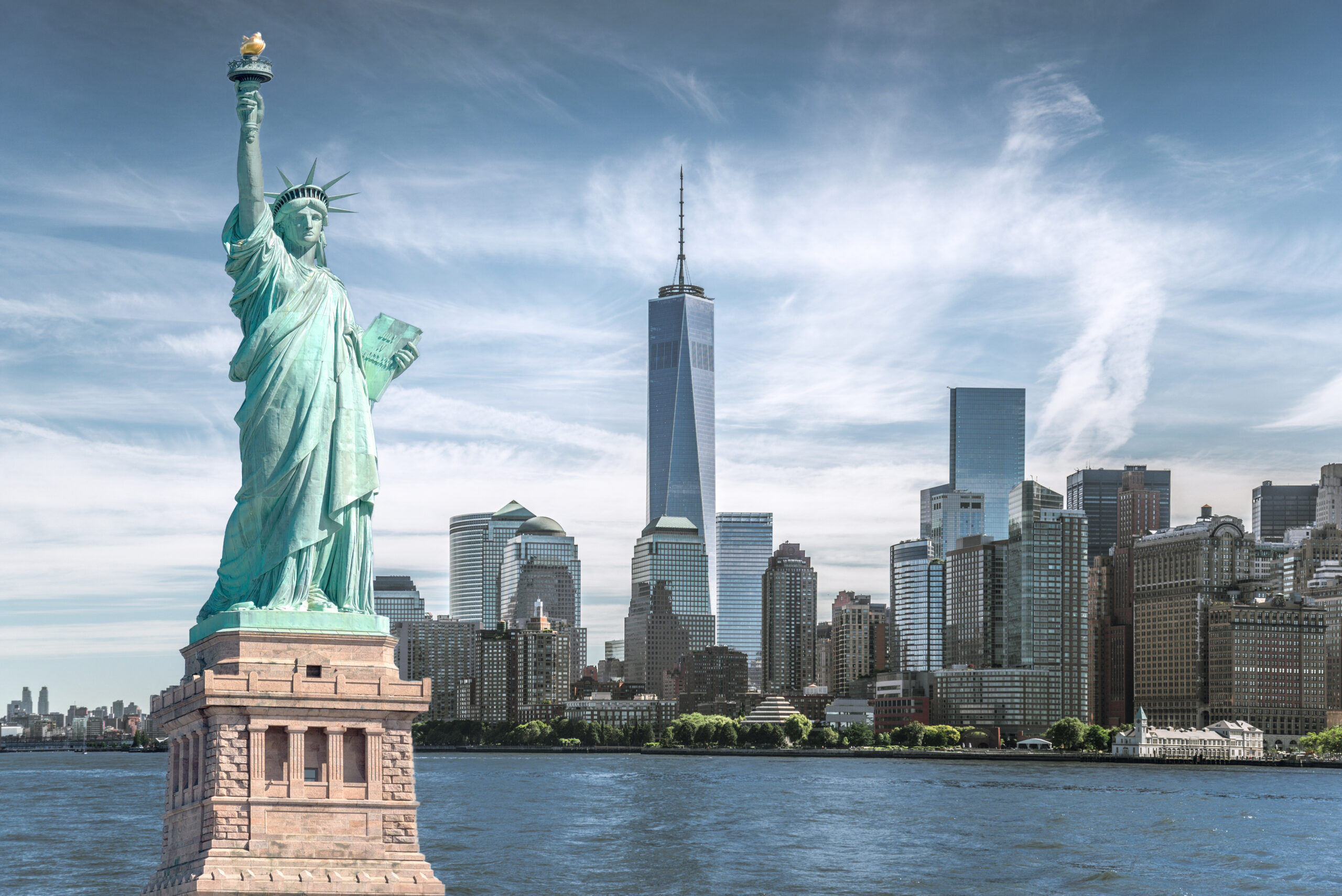Connect with us
Published
3 months agoon

Just as New York Gov. Kathy Hochul (D) voiced her frustration with the slow rollout of the state’s recreational cannabis market, which has infamously run into numerous roadblocks over the past few years, it appears that the Empire State may not be quite out of the woods yet.
After a number of lawsuits blocked the opening of retail cannabis dispensaries for several months last year, a new lawsuit was filed last week in the U.S. District Court for the Northern District of New York.
New York Cannabis Industry’s Newest Lawsuit
The suit has targeted the state’s Office of Cannabis Management (OCM) and its overarching Cannabis Control Board, alongside OCM Executive Director Chris Alexander and Chief Equity Officer Damian Fagon. The plaintiff, a microbusiness applicant, has claimed that equity push on behalf of New York regulators has resulted in discrimination against businesses owned by white men, MJBizDaily reports.
The Jamesville, New York-based plaintiff, Valencia AG, is owned by “males of light pigmentation who might best be described as caucasian or white men,” the lawsuit says, and says it filed a microbusiness cannabis license application in October 2023, which has yet to be reviewed. Valencia said it’s continuing to spend money on its facility lease, utilities and insurance without the ability to use the space.
According to the lawsuit, Valencia AG had to sign a lease for $2,000 monthly, plus utilities and insurance, for consideration for the license. The company claims it “has suffered damages and harm due to delays in obtaining a cannabis license.”
The company alleges that state regulators have violated the equal protection clause by discriminating against them on the basis of race and gender.
Continued Strife Over NY Licensing Process
New York’s cannabis law has social equity clauses written into it, specifying that licensing should “award (50) percent of adult-use cannabis licenses to social and economic equity applicants,” giving priority to applicants from communities that have been disproportionately impacted by the enforcement of cannabis prohibition, along with minority-owned businesses, women-owned businesses, distressed farmers and service-disabled veterans.
Valencia AG was ranked 2,042 on the OCM’s randomized queue of more than 2,200 applicants who applied before Nov. 17, with only a few hundred licenses available and more than 1,800 social and economic equity applicants holding higher priority, the suit states.
Valencia AG claimed that equity applicants will have a “head start” in the industry, enjoying “quick earnings of revenues and profits, it’s encountering less competition, and its early establishment of customer loyalty,” while the company said it will “almost certainly not be granted a license in the foreseeable future.”
Further, the complaint claims that the OCM defendants named, who are not white men, are purposely implementing procedures “that favor and give preference to their own race and gender.”
“The situation is akin to having such key positions held by only white men, and allowing those white men to create and implement regulations and procedures that favor white men,” the suit states.
The lawsuit echoes similar arguments from past litigation, deeming that New York’s licensing program is unconstitutional, and it also is seeking an injunction which could further hold up dispensary approvals until resolution.
Last year, New York Supreme Court Justice Kevin R. Bryant blocked the OCM from issuing new licenses after four veterans sued, saying that the state’s prioritization of applicants with prior cannabis convictions violated the constitutional rights of other social equity applicants. The suit was settled in November 2023.
In November 2022, a federal judge issued a temporary injunction blocking the OCM from issuing retail licenses in five regions of New York because of a lawsuit filed by a company whose application did not qualify because a Michigan-based owner lacked a “significant New York state presence.”
A Closer Look at Social Equity
While the Valencia AG lawsuit claims that the OCM has “intentionally discriminated against plaintiff and other white men,” social equity laws such as those in New York intend to right the injustices of cannabis criminalization in the U.S., which have disproportionately targeted Black people and people of color.
A 2020 ACLU analysis showed that Black people are 3.64 times more likely than white people to be arrested for cannabis possession despite similar usage rates. In some states, that figure rose, with Black people six, eight or almost ten times more likely to be arrested, and in 31 states, disparities were larger in 2018 than they were in 2010.
Looking at New York specifically, an analysis of cannabis-related arrests in 2020 throughout New York City found that people of color comprised 94% of those arrested.
There is also plenty of research showing that white men are still the dominant leaders in the U.S. cannabis industry. A 2021 Business Insider report found that white men make up 70% of top executives at the 14 largest cannabis companies. A 2023 MJBizDaily report looking at the broader industry found that women account for 39% of cannabis executives and racial minorities 24%.
Given that many legal cannabis states have social equity measures in place, it’s likely that these figures would be much smaller without the specific attention paid to populations that regularly suffer from lack of resources, funding and discrimination.


Study Reveals State Cannabis Legalization Lowers Immigrant Deportation


DEA Challenges Bid To Use Psilocybin Under ‘Right To Try’ Legislation


Vegans Rejoice as Farmers Switch from Chickens to Hemp


Louisiana Legislative Committee Unanimously Passes Adult-Use Cannabis Framework Bill


Louisiana House Bill to Regulate Hemp Products Advances Along With Senate Bill to Ban


Gov. Kathy Hochul Honors New York’s 100th Adult-Use Retail Store Opening
